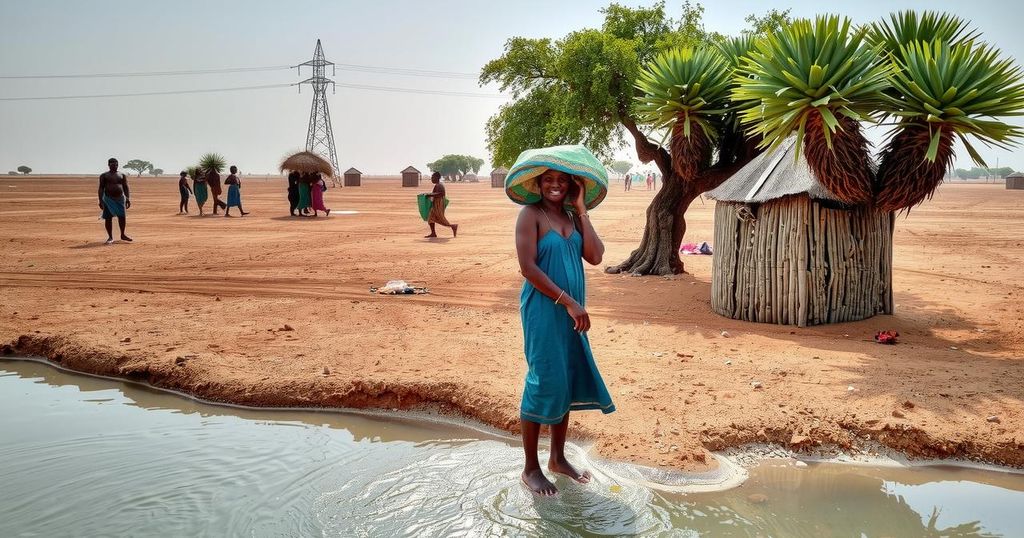The Impact of Climate Change on Human Mobility in Chad: Insights from IOM
Climate change significantly affects human mobility and livelihoods in Chad, particularly due to increasing natural disasters. The IOM is collecting vital data through its Displacement Tracking Matrix to better understand these impacts. However, there are notable gaps in climate-specific data collection, necessitating improved approaches to address the challenges of environmental migration.
The increasing challenges posed by climate change have significant implications for human mobility, infrastructure, and livelihoods in Chad, a country within the vulnerable Sahel region of West and Central Africa. As the frequency of natural disasters escalates, including floods, droughts, and extreme heat, community resilience weakens, leading to displacement and migration. The International Organization for Migration (IOM) is actively engaged in collecting and analyzing data on these issues through its Displacement Tracking Matrix (DTM), providing vital insights into the effects of environmental changes on human populations. Despite the necessity for comprehensive data, there remains a gap in understanding the direct connections between climate phenomena and migration patterns in Chad.
IOM’s DTM serves as a crucial tool for identifying vulnerabilities and addressing the needs of displaced populations, enhancing the capacity of governments and humanitarian actors to deliver context-specific assistance. The data collected during the 2023 DTM assessment sheds light on the impacts of climate change and emphasizes that existing frameworks for data collection need to better encompass environmental factors influencing human mobility. Therefore, while the DTM provides valuable insights, it is imperative that future efforts focus on integrating climate change considerations into migration studies in Chad.
Chad is situated in the Sahel region, known for its susceptibility to the ravages of climate change. Due to rising temperatures and changing weather patterns, the country faces significant challenges, including desertification and erratic rainfall, both critical to sustaining its largely agrarian and pastoral communities. The intersection of these environmental changes yields increased natural hazards that could potentially displace individuals and foster migratory movements. As one of the nations most affected by climate-related challenges, Chad requires robust data to understand and respond to these evolving dynamics. The IOM is addressing these concerns by deploying its DTM, which systematically catalogues information related to population movements and the contexts that underpin them. Such analysis is vital in comprehending the impact of environmental degradation and natural disasters on migration trends. By improving data collection efforts, IOM aims to ensure that stakeholders are equipped with the necessary knowledge to mitigate the impacts of climate change on human mobility.
In summary, climate change poses severe challenges to Chad, exacerbating vulnerabilities and impacting human mobility, livelihoods, and infrastructure. The IOM’s DTM plays an essential role in gathering data that informs responses to the needs of affected populations. However, there remains a significant need for more targeted data collection regarding climate change to fully understand its implications for migration dynamics. Comprehensive approaches will be pivotal in equipping Chad to address these intertwined issues effectively.
Original Source: reliefweb.int




Post Comment